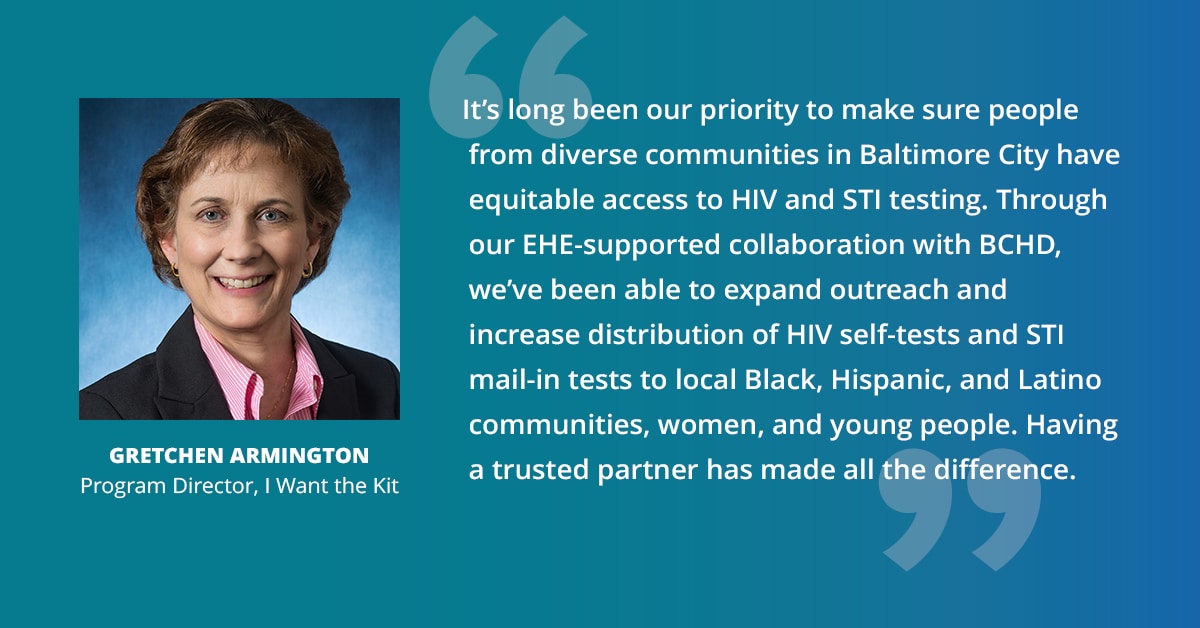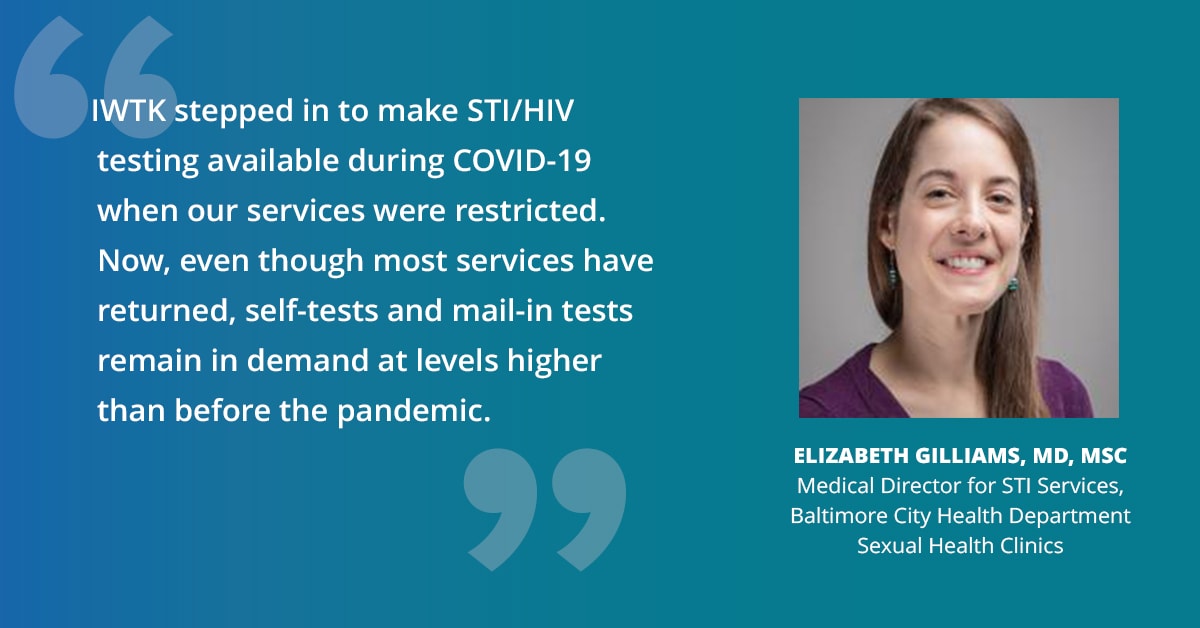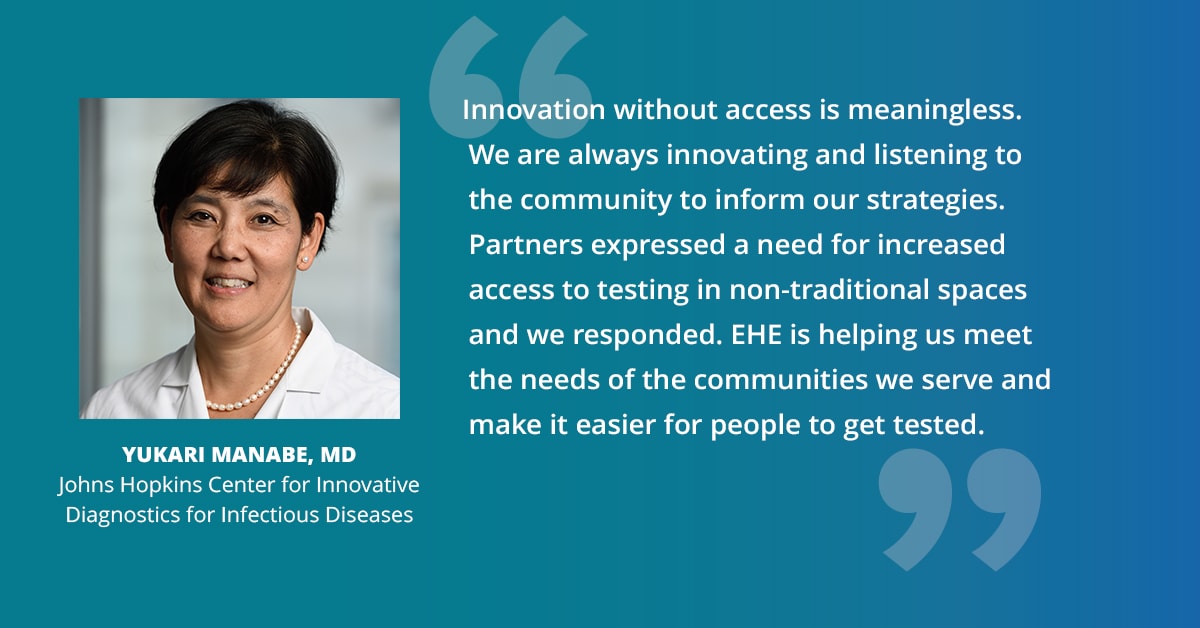
EHE Success Story: Dismantling HIV and STI Testing Barriers in Baltimore City, MD with Self- and Mail-In Tests
Reducing and ultimately ending high rates of HIV and other sexually transmitted infections (STIs) among local residents is one of the Baltimore City Health Department’s (BCHD) top priorities. Like elsewhere in the country, many people in Baltimore City face barriers to HIV and STI testing, including privacy concerns, HIV-related stigma, and mistrust of the healthcare system. These and other barriers stop them from accessing and staying in care, resulting in missed opportunities to prevent and/or treat HIV and STIs.
In 2020, COVID-19 forced many brick-and-mortar clinics to limit or suspend their in-person services—including HIV and STI testing—which amplified existing barriers to care. Additionally, supply chain issues made it difficult for clinics and laboratories to procure the materials and equipment required for in-person testing and processing.
Fortunately, BCHD was ahead of the curve. As part of its CDC-funded Ending the HIV Epidemic in the U.S. (EHE) efforts in 2019, BCHD established a partnership with the I Want the Kit (IWTK) public health service program. This existing partnership meant that BCHD was well positioned to pivot to a non-traditional method of service delivery. Through this partnership, BCHD and IWTK delivered tens of thousands of HIV self-tests and STI mail-in test kits and helped link people to the care they need to be healthy.



Strategies for Breaking Down Barriers to HIV and STI Testing and Care
- Distributing HIV/STI tests during the height of the COVID-19 pandemic:
BCHD partnered with IWTK to significantly scale up the distribution of HIV self-tests and STI mail-in tests when in-person visits were drastically reduced. BCHD referred clients from its sexual health clinics to IWTK for their testing needs, resulting in a 645% increase in monthly IWTK orders. In 2020 alone, they processed over 1,800 HIV self-tests and over 5,500 chlamydia/gonorrhea mail-in tests. BCHD and IWTK continued to see high demand, even after in-person visits resumed: between 2021 and 2022, they processed over 3,000 HIV self-tests and nearly 20,000 chlamydia/gonorrhea mail-in tests. - Prioritizing a user-friendly testing process:
In addition to sample collection swabs and tubes, the mailed kits included discreet packaging, simple instructions, information on STIs, and pre-paid mailing materials. These materials made it easier for people to collect and send in their samples. BCHD and IWTK overhauled the online ordering portal to allow clients to securely track their self-collected sample in the mail and receive results online. They also created a Spanish-language IWTK website to support outreach to Hispanic and Latino communities. - Innovating to meet community needs:
To address difficulties community members faced finding local mailboxes, BCHD and IWTK added QR codes to the testing kits that link to USPS mailbox locations. - Partnering to reach youth:
BCHD partnered with the University of Maryland’s STAR TRACK program to develop an at-home HIV and STI testing program tailored to adolescent and youth health needs called That Box. Designed by youth, the discreet mailer box contains free HIV and/or STI test kits and customized educational materials on HIV, STIs, PrEP, and other sexual health care. Recipients place an order online or receive a kit through STAR TRACK’s mobile van and can opt in to live HIV counseling and service navigation.